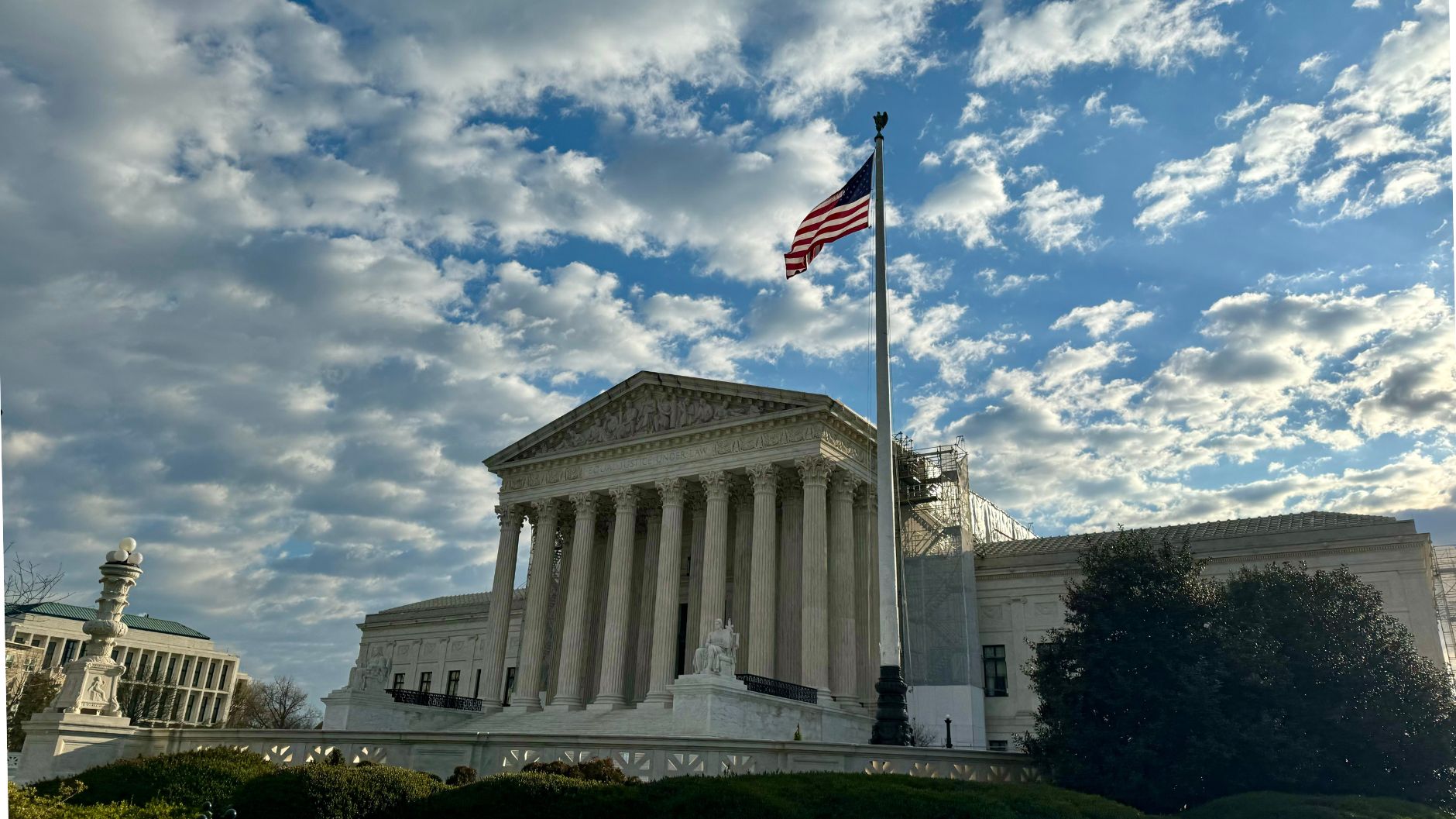WASHINGTON (CN) — The Supreme Court on Thursday clarified sentencing guidelines for felons who possess guns, ruling that courts should look to drug criminalization at the time of sentencing to determine mandatory minimum sentences.
Led by Justice Samuel Alito, the six-justice majority said the Armed Career Criminal Act, which is intended to gauge how dangerous a defendant is by examining their criminal history, requires a backward-looking examination of previous convictions.
“A defendant’s ‘history of criminal activity’ does not ‘cease to exist’ merely because the crime was later redefined,” the George W. Bush appointee wrote. “It therefore makes sense to ask, as the government does, whether a prior offense met ACCA’s definition of seriousness — and thus suggested future danger — at the time it was committed.”
Chief Justice John Roberts joined Alito’s opinion along with Justices Clarence Thomas, Sonia Sotomayor, Brett Kavanaugh and Amy Coney Barrett.
Justice Ketanji Brown Jackson led Justices Elena Kagan and Neil Gorsuch in a dissenting opinion.
The majority, the Joe Biden appointee wrote, had rejected Congress’ intention to base future analyses on today's drug schedules.
“One might harbor doubts that the sentencing policy that Congress enacted is sensible, just, or effective,” Jackson wrote. “But it is the one that Congress wrote, and we remain dutybound to apply the law as written. In my view, the majority has failed to do so here.”
Fluidity in how substances are criminalized has created confusion around sentencing guidelines under the Armed Career Criminal Act. Under the law felons who possess firearms must serve a minimum sentence of 10 years. That number jumps to 15 years if the individual has been convicted of three prior violent felonies or serious drug offenses already.
The justices were tasked with deciding how those requirements should be considered as substances are decriminalized while taking into account discrepancies between state and federal law.
Two men facing firearm possession charges brought the case before the high court.
A Florida court found that Eugene Jackson met enhanced sentencing guidelines for a cocaine-related offense that wouldn't be charged today because the federal government in 2015 legalized a cocaine derivative, ioflupane, because of its use in diagnosing Parkinson’s disease. Eugene Jackson was sentenced in 2017 and claimed the lower court should have taken the government’s decriminalization into account.
Justin Brown faces a similar situation after a Pennsylvania court found he qualified for an enhanced sentence based on a marijuana offense. His sentence was decided in 2021, three years after the federal government decriminalized hemp.
When the Supreme Court heard arguments in November, the men offered up conflicting solutions: Brown said the court should use the most up-to-date substance criminalization, aligning the guidelines with the gun possession sentencing, while Eugene Jackson asked the court to adopt guidelines that look to criminalizations at the time of the federal offense.
The majority’s ruling favors the government’s interpretation of the Armed Career Criminal Act where it concerns state drug offenses involving a controlled substance. Alito said that interpretation guarantees that even if federal and state drug classifications are different, when the federal felon-in-possession law is violated, the earlier convictions that occurred during the prior qualification still count as serious drug offenses.
“A prior drug conviction for an offense punishable by 10 years’ imprisonment augurs a risk of future dangerousness even if the drug is no longer considered dangerous,” Alito wrote. “That is because the conviction reveals that the defendant previously engaged in illegal conduct that created a dangerous risk of violence, either with law enforcement or with others operating in the same illegal field. If left at large, such defendants present a serious risk to public safety.”
By Eugene Jackson’s definition, none of Florida’s cocaine convictions before July 17, 2017, would count, Alito said — and it's highly unlikely that any of those convictions were tied to the possession or sale of Parkinson’s drugs.
The majority likewise rejected Brown’s theory, which Alito said would produce strange results in cases involving long criminal investigations or prosecutions.
Justice Jackson claimed the majority errored in looking beyond the text of the Armed Career Criminal Act. She said the statute definitively establishes that courts should apply the drug schedules in effect at the time of the federal firearms offense — Eugene Jackson’s interpretation.
To get this result, Justice Jackson said it was necessary to cross-reference the Armed Career Criminal Act with current federal drug schedules.
“When a statute contains a cross-reference to another provision, we have always simply applied the version of the other provision in effect at the time the cross-referenced provision was needed, even if Congress amended that provision at some point in the past,” she wrote.
Justice Jackson said Congress seems to have intended the meaning of controlled substances under the law to change with drug schedules. The majority agreed with the government's view of statutory cross-references as “a gateway to the multiverse.”
“The government’s view would unsettle that longstanding drafting convention, injecting uncertainty into what Congress must do to amend statutes using crossreferences,” Jackson wrote. “What is more, if every cross-reference raised a question about which version of the referenced statute applies — past or present — interpretation of federal statutes with cross-references would become entirely unworkable.”
The dissent also accused Alito of fixating on the facts of the petitioners’ prior drug offenses. Jackson said the majority should have used a categorical approach instead.
“Unfairness arises without the categorical approach, because such a defendant’s punishment would be significantly increased under ACCA for a prior state crime involving hemp simply due to his failure to anticipate, at the time of his state convictions, a future change in the federal drug schedules,” Jackson wrote.
Subscribe to Closing Arguments
Sign up for new weekly newsletter Closing Arguments to get the latest about ongoing trials, major litigation and hot cases and rulings in courthouses around the U.S. and the world.









